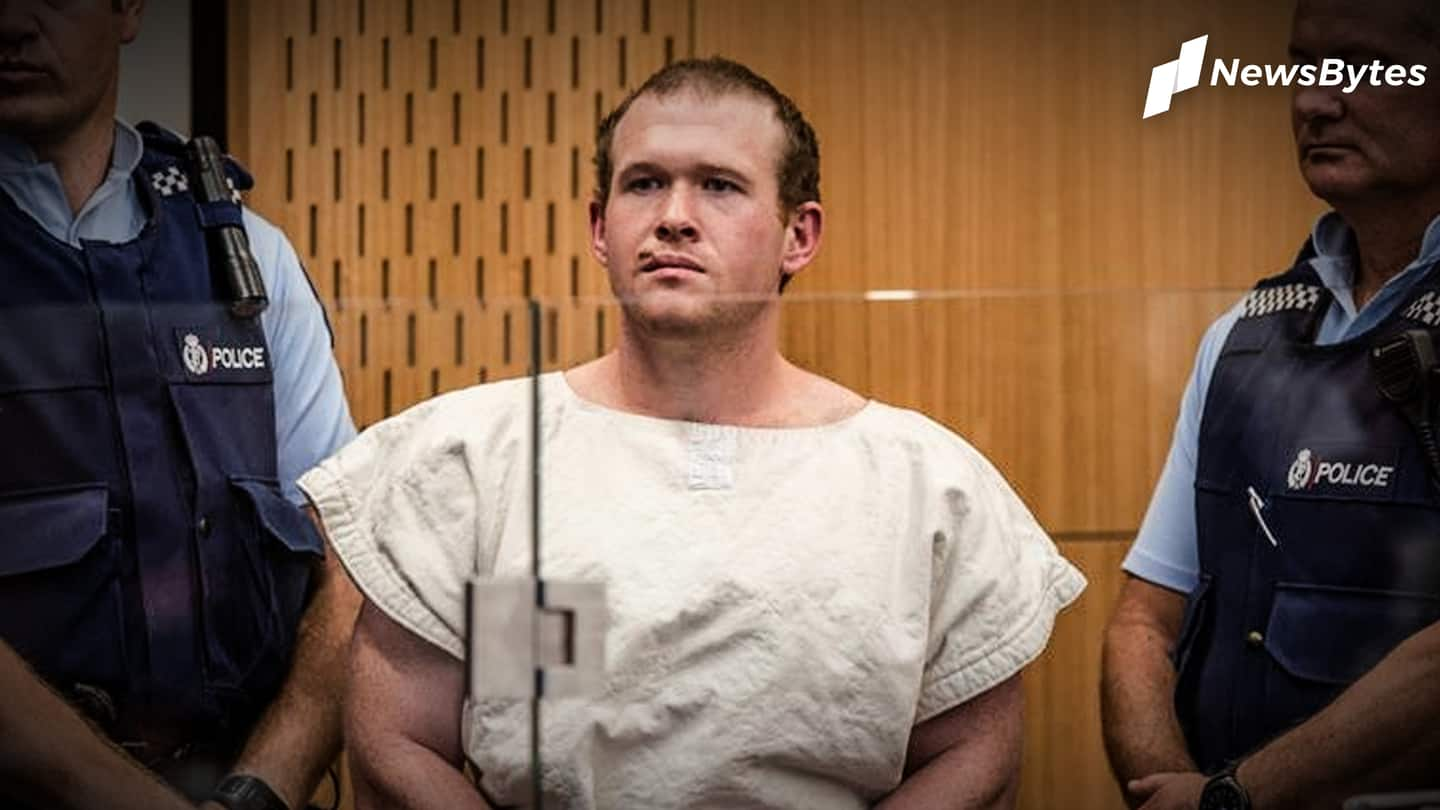
New Zealand: Christchurch shooter gets life imprisonment without parole
What's the story
New Zealand handed over life imprisonment, without the option of parole, to the man who killed 51 Muslim worshippers in two mosques in Christchurch last year.
The accused, 29-year-old Brenton Tarrant, who is an Australian, is the first person to receive such a tough punishment.
The verdict was hailed by Prime Minister Jacinda Ardern, who was praised globally for her response to the act.
Context
Background: Gunman rained bullets during Friday prayers, over 50 died
On March 15 last year, Tarrant opened fire at worshippers during Friday prayers; the rampage went on for at least 20 minutes.
In the massacre, that he live-streamed on Facebook, 51 people died and scores were injured.
The attack garnered an outpouring of grief in New Zealand and the globe and started a conversation about "white supremacist terrorism" and "right-wing extremism."
Verdict
Your actions were inhumane: Judge told Tarrant in court
Handing over a historic punishment to Tarrant, Judge Cameron Mander said his hatred led him to attack men, women, and children, who couldn't defend themselves.
"You showed no mercy. It was brutal and beyond callous — your actions were inhumane," the judge said.
Crown Prosecutor Mark Zarifeh said New Zealand's criminal history witnessed nothing like this, as he sought a life sentence for Tarrant.
Admission
Tarrant didn't oppose the verdict, didn't show remorse either
Tarrant, who represented himself but chose to remain silent, asked lawyer Pip Hall to speak for him. Hall informed the court that the shooter does not oppose the sentence.
He accepted the 51 charges of murder, 40 charges of attempted murder and one charge of terrorism.
As he sat in court, Tarrant showed no remorse, sadness, or fury, surprising the victims and the judge.
Quote
Judge noted that Tarrant never apologized for his actions
"You have offered no apology or public acknowledgment of the harms you have caused. While I appreciate that you have forsaken the opportunity to use these proceedings as a platform, you appear neither contrite nor ashamed," Judge Mander said.
Sentencing
Before verdict, teary victims recounted the pain in court
Judge Mander's verdict capped a four-day sentencing hearing, where victims spoke about the pain Tarrant caused.
One Sara Qasem, who lost her father, said she wondered about her father's final thoughts. She also spoke about the unfulfilled plans and her father's cooking.
As she started crying, she looked at Tarrant and said, "These tears are not for you."
Details
"Why did he kill my baba?"
Hamimah Tuyan, the wife of Zekeriya Tuyan, who succumbed to injuries after a long battle of 48 days, said, "My eldest son only has five years of memories with his father, my wee one - not enough. My son asked, why did he kill my baba?"
Ahad Nabi, whose father died, said, "Your father was a garbage man and you became trash of society."
Judge's words
Judge told Tarrant he destroyed numerous families
Judge Mander also read out moving accounts of some families — he had to compose himself twice during the process. He mentioned three-year-old Mucaad Ibrahim, who was killed by Tarrant, saying, "No parents can recover from the murder of such a small child."
"Your actions have destroyed that family as they have so many other families," Mander said while speaking about one family.
Reaction
Welcoming verdict, Ardern noted that pain might not fade away
The judge revealed that Tarrant planned the carnage extensively. The investigation into the attack had revealed that he procured semiautomatic weapons and studied plans to attack the mosques.
Reacting on the verdict, Ardern said the pain might never go away.
"Today I hope is the last where we have any cause to hear or utter the name of the terrorist behind it," she added.